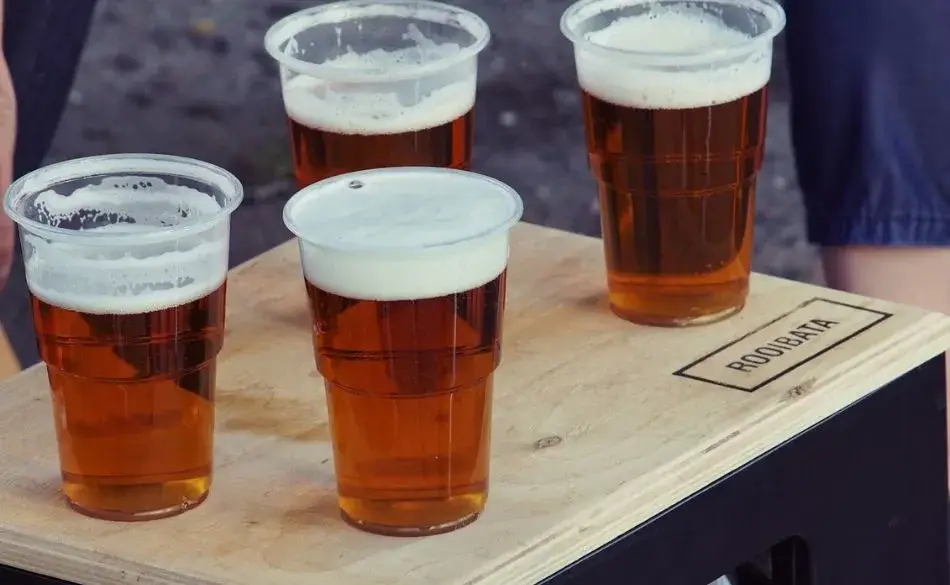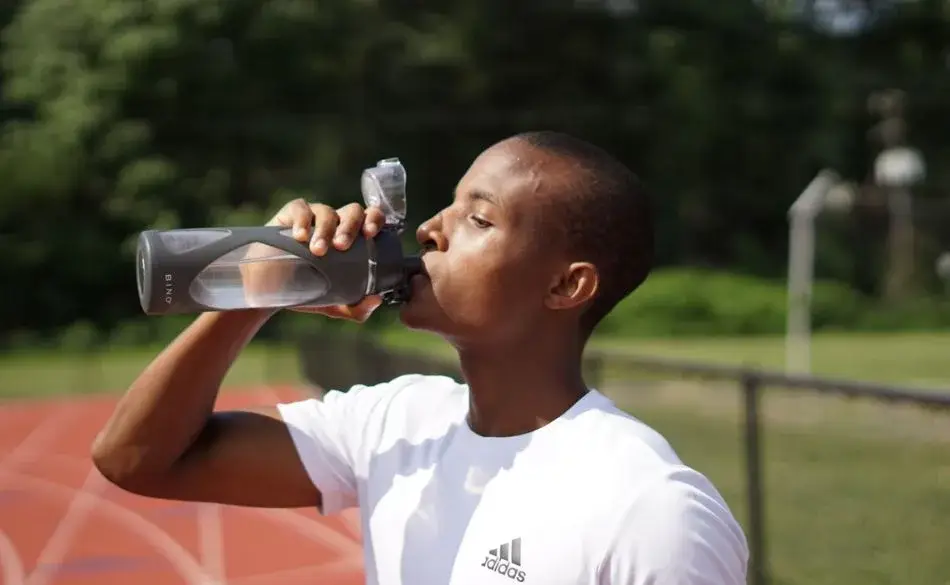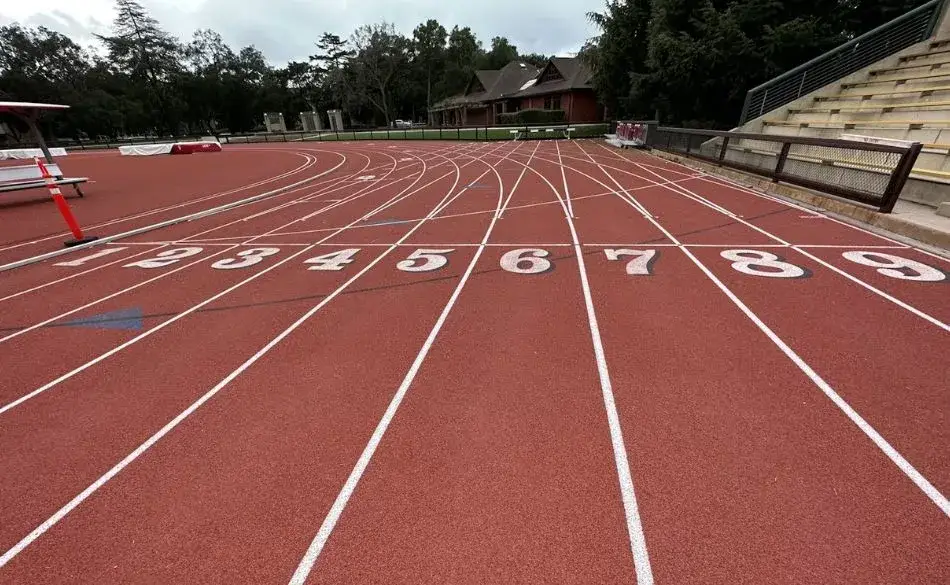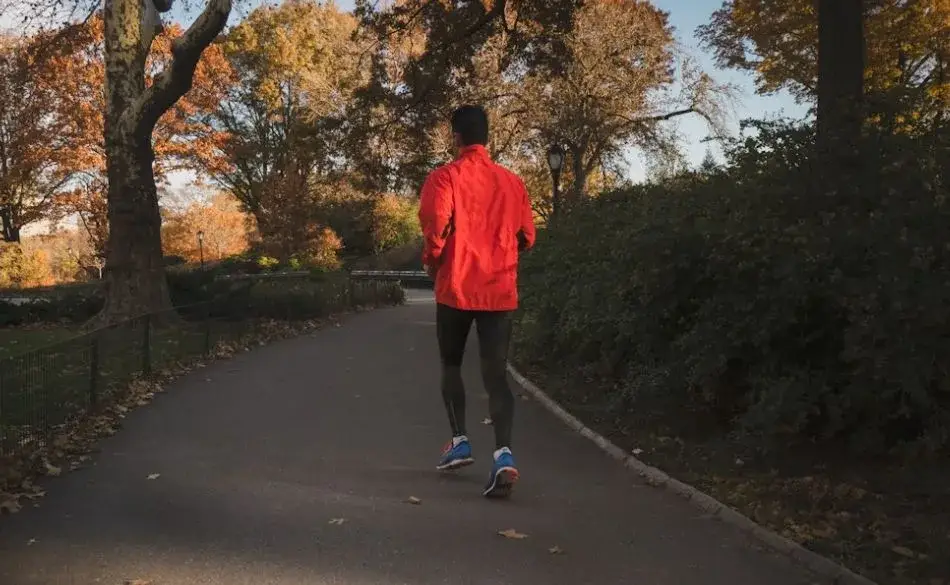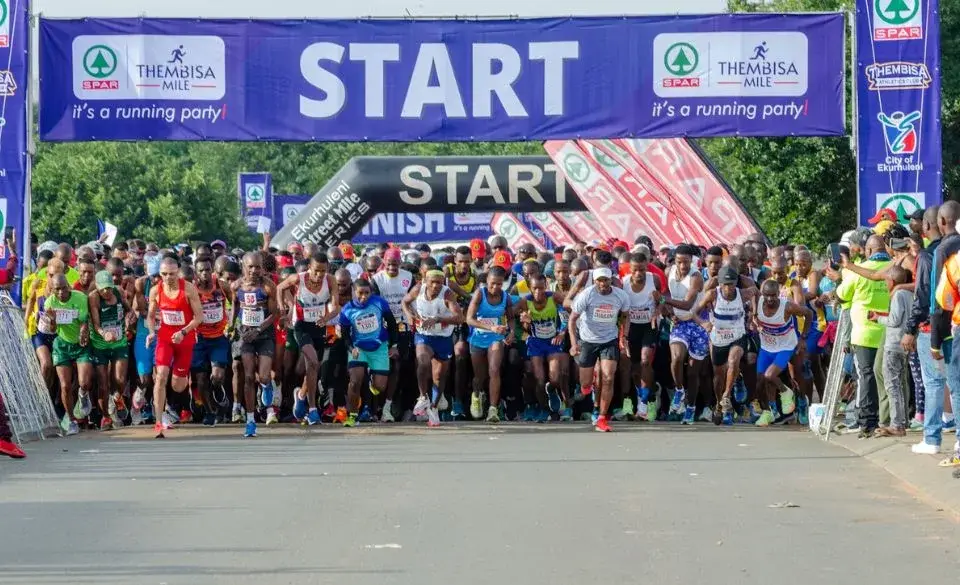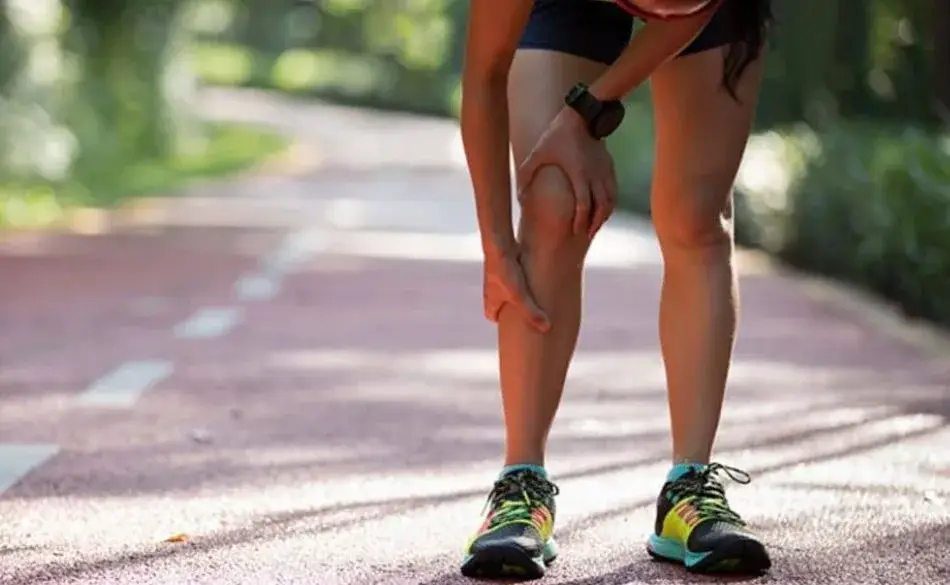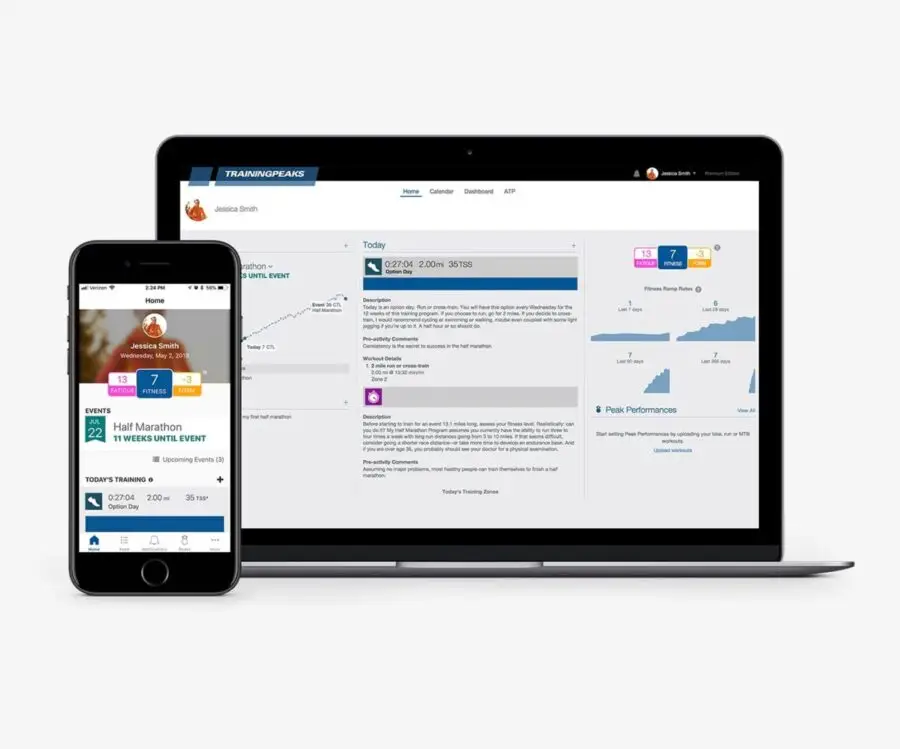Should You Run Hungover or Rest Instead?
The first question most people ask after a night of drinking is simple: should I actually run today? The truth is, running with a hangover is a balancing act between risk and recovery. While light exercise may sometimes ease the fog, pushing too hard can set you back.
The biggest issue is that alcohol impacts nearly every system tied to performance. It leaves you dehydrated, lowers your blood sugar, and interrupts sleep (all things your body relies on for strong training). If you head out for a hangover recovery run, don’t expect to hit your usual paces. Even an easy jog may feel like hard work.
For many runners, this can be frustrating. But here’s the thing: not every workout is about progress. Sometimes, movement is about maintenance. Going for a gentle morning run after drinking can improve circulation, lift your mood, and reset your mindset for the day ahead. That said, skipping the run is often the smarter choice if your symptoms are intense.
When I coached one of my marathon athletes through his training block, he admitted to showing up hungover after a late night at a wedding. His “easy” run turned into a grind. He was dizzy halfway through, and his heart rate spiked far above normal. The lesson? Recovery mattered more than squeezing in miles.
So, should you run? Ask yourself a few questions first:
- Can you hydrate and fuel before heading out?
- Do you feel stable enough to run without dizziness?
- Are you willing to treat this session as recovery, not training?
If the answer is no, the best choice might be rest. But if you can keep the pace light, hydrate well, and lower expectations, a short jog can sometimes help you feel better.
Preparing for 13.1 miles takes more than just running longer each week. You need the right mix of mileage, long runs, and strength work. Our Running Training Plans are designed to guide beginners and experienced runners through a structured, step-by-step approach so you can reach race day feeling confident and ready.
- Plans for all levels: beginner, intermediate, and advanced
- 12-week and 16-week options tailored for half marathon training
- Strength and cross-training built into every schedule
- Delivered within 24 hours so you can start preparing immediately
- One-time purchase with no hidden fees or subscriptions
Train smarter, stay injury-free, and cross the half marathon finish line stronger than you imagined.
View Half Marathon Plans →What Actually Happens to Your Body When You Run Hungover?
When you step out the door for a morning run after drinking, your body isn’t starting from zero, it’s already behind. Alcohol changes the way your system works, and that shows up quickly once you begin moving.
The first big problem is hydration. Alcohol is a diuretic, so your body loses fluids faster than normal. Combine that with sweating, and you’re suddenly running while dehydrated. Your blood volume drops, which forces your heart to pump harder to deliver oxygen. This is why your heart rate shoots up and why easy runs can feel strangely intense.
Then there’s energy. Alcohol lowers glycogen, the carbohydrate fuel stored in your muscles. When glycogen runs low, so does performance. A run that normally feels smooth can feel like dragging weights on your ankles. One of my athletes once told me that after a night out, his legs felt like lead within minutes. Proof that alcohol and running performance don’t mix well.
Sleep also plays a role. Even if you were in bed for eight hours, alcohol prevents deep rest. Without that recovery, muscle repair slows, and your nervous system is less sharp. This affects coordination and balance, making you more prone to tripping or stumbling on uneven ground.
Finally, there’s perception. A hangover changes how effort feels. That conversational pace you normally enjoy may suddenly feel like tempo. Add in a racing pulse, a dry mouth, and a pounding head, and you’ve got the recipe for a tough session.
So what does this mean for your hangover recovery run? It’s not that you can’t run, it’s that everything feels harder. If you’re prepared for that, and you keep the pace light, you can still get some benefit. But ignore the signs, and you risk turning a simple jog into unnecessary stress.
Looking for simple ways to stay hydrated? Discover how orange juice can support recovery and hydration in our guide: orange juice for dehydration.
Can Running Help Sweat Out a Hangover?
A lot of runners believe a good jog will “sweat out” the alcohol. The idea sounds appealing, but the science tells a different story. Your liver, not your sweat glands, is responsible for breaking down alcohol. That means no matter how much you run, you can’t actually speed up the detox.
What running can do is help you feel better in other ways. A gentle hangover recovery run improves circulation, lifts endorphins, and gives you a small mental boost. Think of it less as clearing toxins and more as hitting the reset button on your mood. This is why some runners swear by a morning run after drinking even if the science says alcohol is still in their system.
Hydration is another important factor. Because alcohol is a diuretic, you’re already low on fluids when you wake up. Add sweat to the mix, and you’re compounding the problem. Instead of sweating out the hangover, you’re more likely to deepen dehydration. That’s why running while dehydrated often feels harder than expected.
I once had an athlete who insisted on jogging the morning after his birthday celebration. He lasted twenty minutes before calling it quits. What helped him more than the run was drinking electrolyte water and eating a proper meal afterward. The lesson here was simple: the run didn’t cure the hangover, but the routine of moving lightly and then refueling set him up for a better day.
So, can you sweat it out? Not really. But you can use a light jog as a tool to reconnect with your body, boost your mood, and ease back into routine. Just don’t mistake the mental lift for a physical cure. Your body still needs hydration, food, and time.
Is Running With a Hangover Dangerous?
There’s a big difference between a light jog to clear your head and pushing through a full training session. When you attempt running with a hangover, you’re asking your body to perform while it’s already under stress. That stress can turn uncomfortable into unsafe if you’re not careful.
The first concern is hydration. Alcohol acts as a diuretic, which means you lose fluids faster. Add sweat, and you’re not just running while dehydrated, you’re also depleting essential electrolytes like sodium and potassium. This increases the risk of cramping, dizziness, or even heat exhaustion, especially on warm days.
Another issue is cardiovascular strain. Studies show that alcohol can elevate resting heart rate for up to 24 hours after drinking. When you head out for a morning run after drinking, your heart may already be working harder than normal. Add exercise, and you could be pushing your system close to its limit without realizing it.
Coordination is also affected. Alcohol impairs your nervous system, slowing reaction times and disrupting balance. On the road or trail, that raises the risk of trips, falls, or rolled ankles. Think of it as running with your internal sensors dulled. You may not react as quickly to uneven ground or sudden obstacles.
One of my athletes learned this lesson the hard way during a group long run. Still recovering from the night before, he clipped a curb and went down hard. Thankfully, the injury was minor, but it sidelined him for a week. The hangover itself wasn’t the problem, the lack of coordination caused by it was.
So, is it dangerous? The answer depends on severity. If symptoms are mild, a very light hangover recovery run may be safe with proper hydration. But if you feel dizzy, have chest pain, or struggle to stay upright, the risks outweigh any possible benefits.
It’s not just how you feel, research shows athletic performance may drop by around 11% the day after drinking. This highlights how much alcohol can impact recovery and running ability, even if you think you’re fine to train – Learn more.
Struggling with post-run headaches? Learn causes and remedies in our guide on headache after running.
How to Run Hungover Safely
If you decide to go running with a hangover, the key is safety over performance. This isn’t the time to chase personal bests or hammer intervals. Instead, think of it as a gentle check-in with your body.
Start with hydration. Because alcohol leaves you low on fluids, heading out running while dehydrated can push your body into dangerous territory. Drinking water or an electrolyte mix before you leave helps restore balance. A small snack (something simple like a banana or toast) also steadies blood sugar, which alcohol tends to disrupt.
Keep your pace easy. A hangover recovery run should never feel like a workout. Stay at conversational speed, and if your heart rate feels unusually high, slow down or walk. Your body is already under stress, and forcing intensity only makes the hangover symptoms worse.
Choosing the right environment makes a difference. Cooler temperatures or shaded paths reduce extra strain. A morning run after drinking in hot conditions can escalate dehydration quickly, so be cautious. If in doubt, the treadmill can provide a safer, controlled setting.
One of my athletes once tested this by heading out for a short jog the morning after a night out. He planned five miles but wisely cut it to two when his heart rate spiked early. The short distance still gave him the mental reset he wanted without adding unnecessary stress. That choice allowed him to bounce back stronger for his next scheduled workout.
At the end of the day, running after drinking alcohol isn’t about building fitness—it’s about moving gently to feel better. Keep expectations low, listen to your body, and never hesitate to stop if symptoms worsen. The smartest run on a hangover is often the one you keep short and easy.
Crafting your own race plan can feel overwhelming. That’s why our Half Marathon Running Training Plan delivers a clear, customized roadmap—whether you’re eyeing your first 21.1 km or chasing a personal best.
- 12–16 week plan tailored to your current fitness and availability
- 1-hour consultation ensures the plan fits your goals & lifestyle
- Works with pace, heart-rate, or perceived effort systems
- Delivered via TrainingPeaks within 24 hours
- One-time payment: $159 AUD, no subscription or recurring fees
Train smarter, run stronger, and cross your half marathon finish line with confidence.
View the Plan →When Should You Skip the Run Altogether?
Not every hangover is created equal. Sometimes, a light hangover recovery run can lift your mood. Other times, running with a hangover is the worst decision you can make. The challenge is knowing when to push through and when to back off.
One of the biggest red flags is nausea or vomiting. If you can’t keep fluids down, heading out the door only increases the risk of dehydration. In that state, you’re not just running while dehydrated—you’re also forcing your body to work without proper fuel or balance.
Another warning sign is dizziness or blurred vision. Alcohol slows reaction times, and when your coordination is already off, even a short jog can become dangerous. On roads or trails, that’s a recipe for trips, falls, or twisted ankles.
Heart rate is another key clue. If your pulse feels high before you even start, a morning run after drinking will likely push your cardiovascular system too far. Instead of improving fitness, you’re adding unnecessary strain.
I had one athlete preparing for a half marathon who insisted on squeezing in his long run the day after a big night out. Within minutes, he was dizzy and unsteady. We cut the session and used the day for active recovery instead (hydration, stretching, and rest). By the next workout, he was back on track, but the lesson stuck: listening to your body comes first.
So, when should you skip? If you’re nauseous, dizzy, or dealing with a pounding head, the smart choice is rest. Even if the schedule says “run,” your body says “recover.” And respecting that signal will keep you healthier and more consistent in the long run.
If dizziness is something you’ve struggled with after exercise, you’ll find practical tips in our guide on dizzy after workout – what to do.
Can Running With a Hangover Ever Be a Good Idea?
It may sound surprising, but not all runs after drinking are a bad idea. In some cases, running with a hangover can provide small benefits (if you approach it wisely). The trick is treating the effort as light movement rather than a performance session.
A gentle jog increases blood flow and releases endorphins, which can improve mood. Many runners describe this as a mental “reset,” where the fog of the night before starts to clear. That’s why a carefully managed hangover recovery run sometimes leaves you feeling better than before.
Still, the positives are mostly psychological. Physically, you’re not gaining fitness. Alcohol reduces glycogen and hydration, so a morning run after drinking can’t match the quality of a normal workout. Instead, you’re simply reminding your body of routine while waiting for full recovery.
Environment plays a role here too. Running indoors or in cool conditions is safer than attempting a long, hot outdoor session. Heat makes running while dehydrated worse, so the treadmill or shaded paths are better choices when you’re not at your best.
So yes, sometimes running after drinking can be a good idea. But only when you keep the effort easy, the distance short, and expectations realistic. Think of it as active recovery, not progress. The benefits come from mental clarity and routine, not from building endurance or speed.
Tips to Make a Hangover Run Less Miserable
If you decide to attempt running with a hangover, the key is preparation. A few small changes can make the difference between a run that feels tolerable and one that feels like punishment.
Start with hydration. Alcohol strips water and electrolytes from your system, so replacing both is essential. Aim for at least 500 ml of water before your run, and add electrolytes if you have them. This helps reduce the strain of running while dehydrated.
Fuel is another important piece. Alcohol lowers glycogen, which is your muscles’ stored energy. Eating something simple (like a banana, toast with honey, or oats) can give you enough fuel for a short hangover recovery run. Skipping food makes it more likely you’ll crash mid-run.
Pace is where many runners go wrong. A morning run after drinking should be kept very easy. Think recovery pace, not training pace. If your breathing feels harder than usual, back off. Remember: today’s goal is movement, not performance.
Choosing the right setting also matters. Running in heat or on hills increases stress on your body. Instead, pick shaded areas, flat terrain, or even a treadmill indoors. By lowering external stress, you reduce the risks that come with running after drinking alcohol.
Finally, listen closely to your body. If you feel lightheaded, dizzy, or unusually exhausted, stop. There’s no shame in cutting a run short. Tomorrow’s session is far more important than forcing miles today.
If you’d prefer step-by-step guidance over self-paced plans, our Running Coaching brings you one-on-one support to fine-tune your half marathon training—whatever your starting point or pace.
- Custom training tailored to you: your goals, lifestyle, and fitness
- Weekly check-ins: feedback on workouts, form, and progress
- Technique and strength guidance: so you stay efficient and injury-free
- Flexible schedule: virtual sessions to suit your availability
- No subscription required: pay as you go or select a coaching block
Run smarter, stay motivated, and crush your half marathon with confidence and guidance.
Learn About Running Coaching →Pros and Cons of Running With a Hangover
Like most training decisions, running with a hangover isn’t all good or all bad. It depends on your symptoms, your goals, and how cautious you are. To help you weigh the choice, here’s a breakdown of the most common benefits and drawbacks.
Even though you can’t sweat out a hangover, light exercise may give you a mental lift. On the other hand, running while dehydrated can easily make things worse. Some of the athletes I coach have noticed that short, easy runs give them clarity. Others have found that even a slow jog leaves them drained for the rest of the day.
That’s the tricky part, it’s not one-size-fits-all. Your experience depends on how much alcohol you consumed, how well you slept, and how well you rehydrate. Below is a quick comparison:
👉 Swipe to view full table
| Potential Benefits | Potential Risks |
|---|---|
| Boosts mood and endorphins A short jog can lift mental fog and improve overall mood. |
Increases dehydration Sweating on top of alcohol-related fluid loss worsens dehydration. |
| Provides a mental “reset” Helps you regain a sense of control and routine. |
Elevates heart rate unusually high Dehydration and alcohol stress the cardiovascular system. |
| Helps restore routine Maintains consistency in your training schedule. |
Reduces coordination and reaction time Increases chances of trips, falls, or rolled ankles. |
| Light movement eases stiffness Gentle exercise helps loosen muscles and joints. |
Can worsen fatigue if overdone Pushing too far delays recovery and lowers performance later. |
| Short jog may support recovery mindset Signals that you’re moving forward despite a tough morning. |
Risk of falls or injury Slower reflexes make uneven terrain or crowded paths dangerous. |
| Promotes circulation Better blood flow may ease headaches and nausea slightly. |
Stomach upset Running on unsettled digestion can cause cramps or nausea to worsen. |
The lesson here is simple: a hangover recovery run is best kept short, slow, and flexible. Treat it as an option, not a rule. If the risks feel higher than the benefits, you’re better off skipping the session.
Final Thoughts on Running With a Hangover
At the end of the day, running with a hangover is about balance, not toughness. Some mornings, a light jog might lift the fog, boost your mood, and help you get back on track. Other times, it can drain you further and leave you struggling through the rest of your day. The difference comes down to listening to your body.
A gentle hangover recovery run is safe only when your symptoms are mild, you’ve hydrated, and you’re prepared to keep the pace truly easy. If you’re dizzy, nauseous, or your heart feels like it’s racing before you even start, the risks outweigh any possible benefit. That’s when rest, fluids, and food are the smarter recovery tools.
It’s worth remembering that alcohol doesn’t just impact one run. It affects recovery, hydration, and even your performance in the days that follow. For long-term progress, it’s better to think of these sessions as optional, not mandatory. Missing one run after a night out won’t derail your training. But forcing yourself through a risky session might.
So the next time you’re debating whether to lace up or stay in bed, ask yourself: what will help me feel better tomorrow? Sometimes the answer is a short shuffle. Other times it’s rest, water, and a decent breakfast. Either way, choosing recovery over ego is what keeps you consistent, healthy, and strong.

